Myrtle Beach Water Safety & Rules
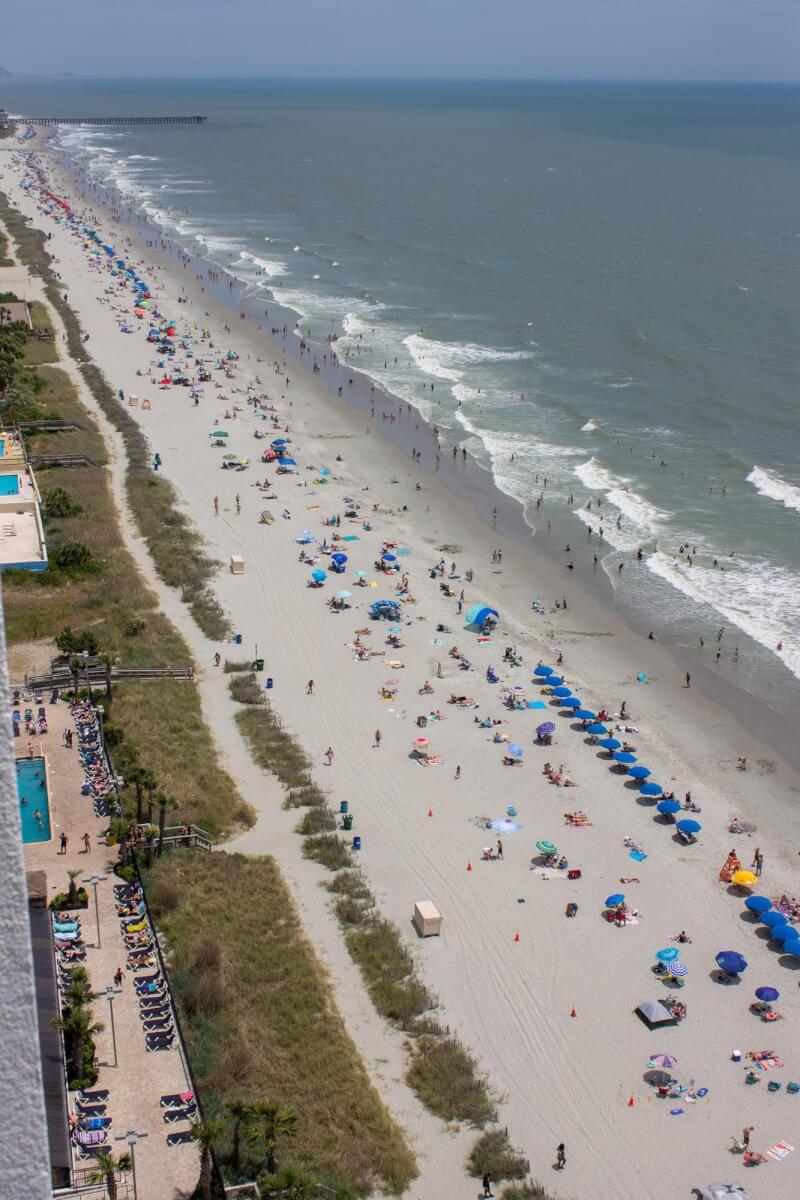
Dive into a worry-free beach vacation with our comprehensive guide to Myrtle Beach water safety. Understanding water quality and flag warnings keeps you and your family safe, while familiarizing yourself with the Myrtle Beach rules makes sure all your fun is legal! It’s equally important to know what to expect during jellyfish season. There’s a lot to learn, but don’t worry – we’ve got you covered. Grab your sunscreen and beach towels, and make a splash in Myrtle Beach!
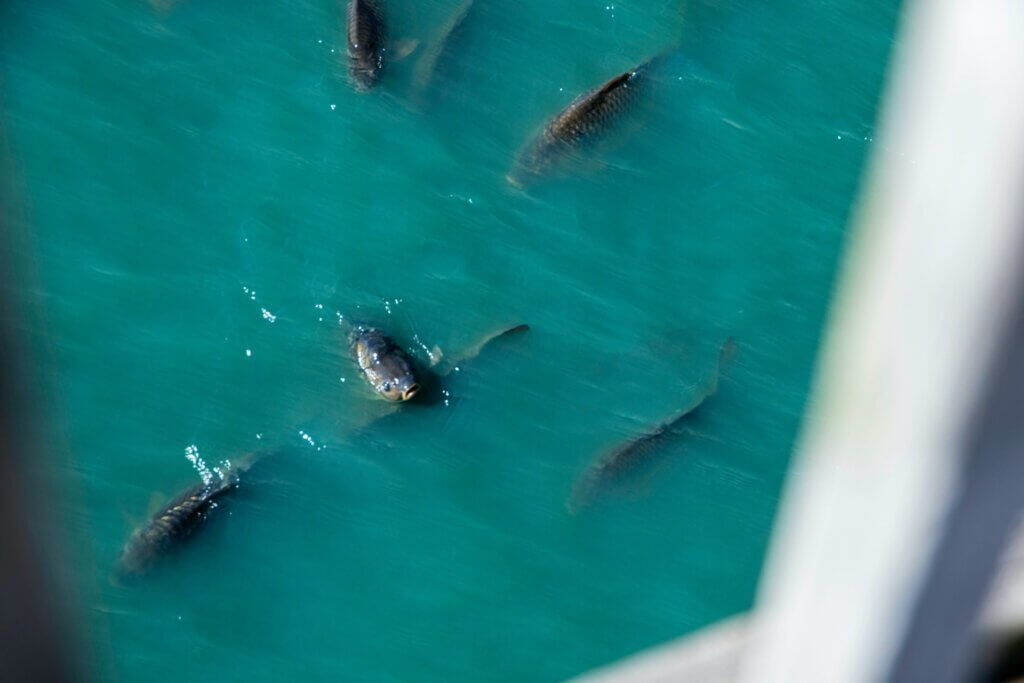
Myrtle Beach Water Quality
Factors such as rainfall, tidal changes, and pollution all affect water quality. Heavy rains can cause stormwater runoff, which may carry pollutants into the ocean. Tides can impact the water’s cleanliness. Human activities such as littering and waste disposal can also harm the beach environment. (Do your part by always disposing of your trash and following local guidelines!)
Given these factors, Myrtle Beach takes water safety seriously. They provide beachgoers with regular swim advisories and water quality testing. To stay up-to-date on current conditions, visit Check My Beach, which provides real-time information on swim advisories, water quality, and beach conditions in Myrtle Beach.
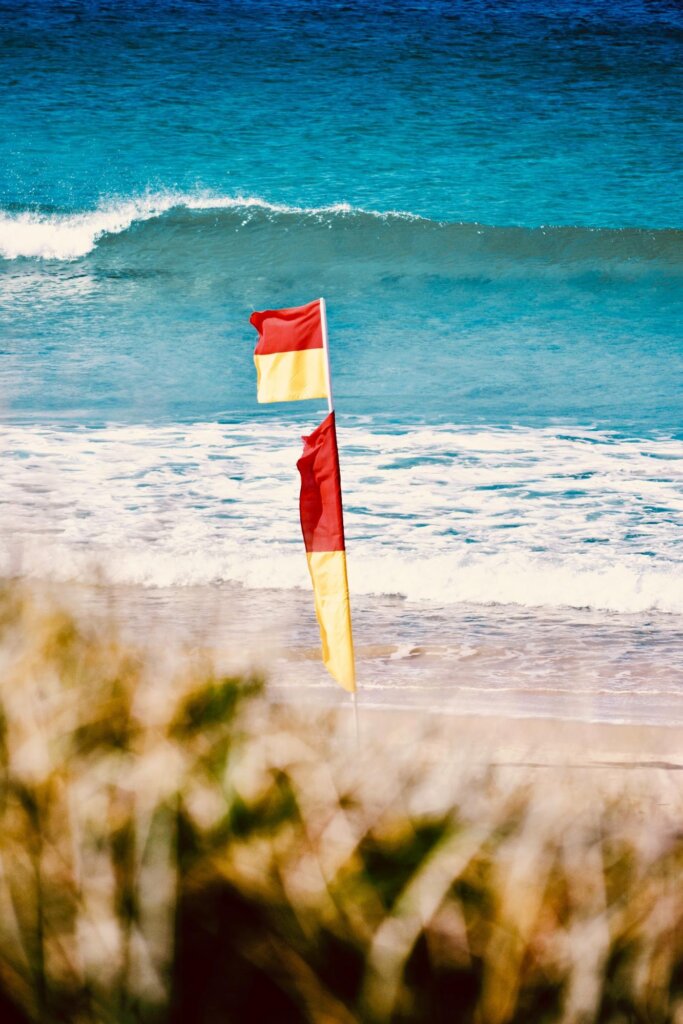
Myrtle Beach Flags
The Myrtle Beach flags provide essential information about beach conditions and potential hazards. Understanding the meanings of each color is crucial for a safe and enjoyable beach experience. Watch for these flags and heed their warnings to ensure a fun and safe time in the Myrtle Beach waters:
- Green Flag: Low risk, calm conditions
- Yellow Flag: Moderate surf and currents
- Red Flag: High surf and strong currents
- Double Red Flag: Beach closed to the public
- Purple Flag: Dangerous marine life present
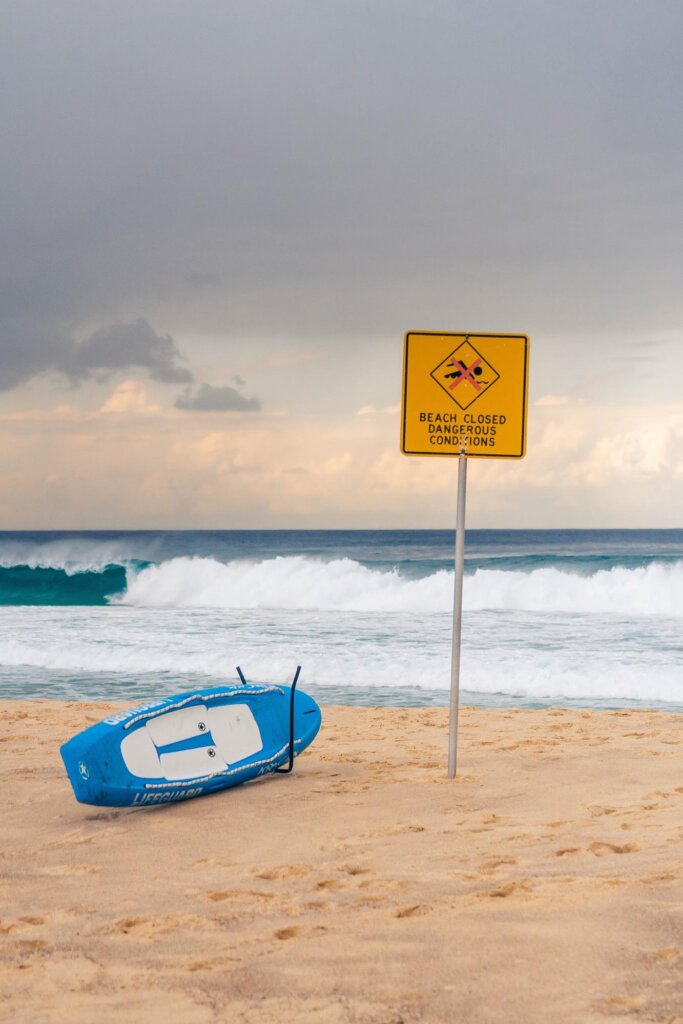
Myrtle Beach Rules
Myrtle Beach has established specific rules to maintain a safe and family-friendly atmosphere for everyone. Here are some frequently asked questions about the rules:
- Alcohol: Drinking and public intoxication are prohibited on the beach.
- Pets: Dogs are allowed on the beach, but restrictions apply during peak season (May 1 – Labor Day).
- Bikes: Bicycles are permitted on the beach, but restrictions apply during peak season (May 1 – Labor Day).
- Bonfires: Open fires and bonfires are not allowed on the beach.
Additionally, Myrtle Beach has rules regarding using beach tents, umbrellas, and chairs. These regulations help maintain a clear line of sight for lifeguards and emergency personnel. Consult the City of Myrtle Beach for more details and the most up-to-date information on these and other rules.

Myrtle Beach Jellyfish Season
Myrtle Beach jellyfish season typically occurs during the warmer months from June to August. Several types of jellyfish can be found along the South Carolina coast, including the Moon Jellyfish and the Atlantic Sea Nettle. While jellyfish stings are generally mild, it’s essential to know what to do if stung:
- Carefully pluck any visible tentacles.
- Rinse the affected area with vinegar or saltwater.
- Use a credit card or other flat, blunt object to scrape away any remaining tentacles gently.
- Apply a cold pack to reduce pain and swelling.
- If symptoms persist or worsen, seek medical attention.
To minimize your chances of encountering Myrtle beach jellyfish, avoid touching any marine life. You can also wear protective clothing, such as rash guards and water shoes, to shield your skin from potential stings.

Staying Safe in the Myrtle Beach Waters
In addition to understanding water quality, Myrtle Beach flags, and local rules, it’s important to keep general water safety in mind. Here are some tips to ensure a safe and enjoyable time at Myrtle Beach:
- Learn to swim: Make sure everyone in your group, especially children, knows how to swim before entering the water.
- Supervise children: Always keep a close eye on children in the water and never leave them unattended.
- Use sunscreen: Apply water-resistant sunscreen with at least SPF 30 to protect your skin from the sun’s harmful rays.
- Stay hydrated: Drink plenty of water throughout the day to prevent dehydration.
- Know your limits: Don’t push yourself beyond your comfort zone in the water, and avoid swimming in rough conditions or when you’re overly tired.
- Always swim with a buddy.
- Stay within designated swimming areas.
- Be aware of rip currents. In the event of a rip current, stay calm, swim parallel to the shore until you’re out of the current, and then swim back to the beach.
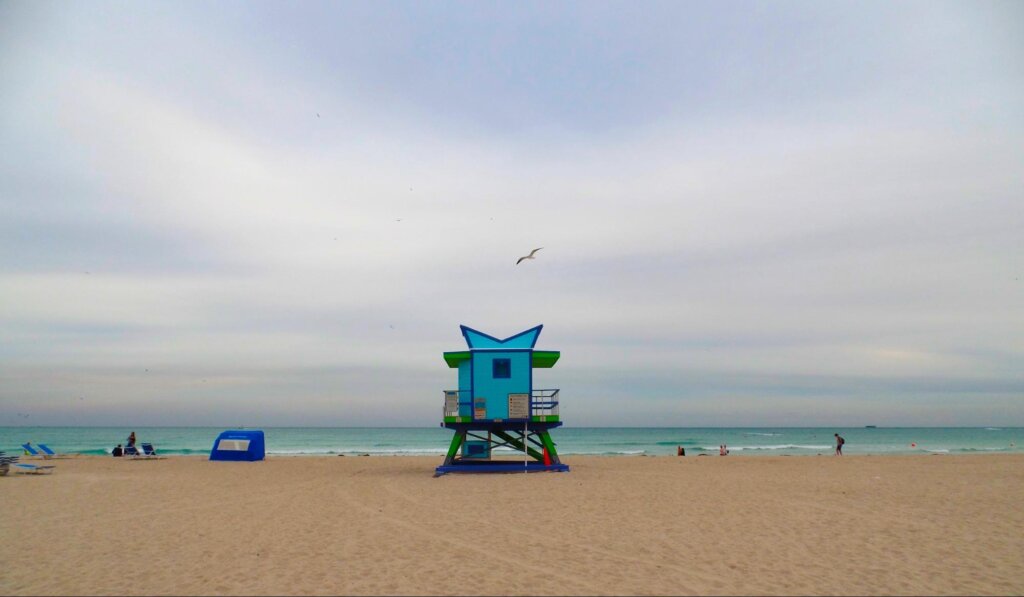
Lifeguard Presence: Your Best Ally
When it comes to water safety, lifeguards play a crucial role in keeping beachgoers safe and secure. Myrtle Beach provides trained lifeguards along its shoreline during the busy summer season. Stationed at regular intervals, these professionals keep a watchful eye on swimmers.
Before you start enjoying the sun and surf, take a moment to locate the nearest lifeguard stand. This will not only help you identify a safe area for swimming but also provide you with a point of reference in case of an emergency. Lifeguards have lifesaving knowledge and training in water rescues and first aid procedures.
Pro tip: Lifeguards also offer valuable information about beach conditions, potential hazards, and local rules. Don’t hesitate to approach them with any questions or concerns you might have. They are there to help ensure your beach experience is both safe and enjoyable.
Here are some tips on taking advantage of the lifeguard presence in Myrtle Beach:
- Always swim near a lifeguard: Choose a spot close to a lifeguard stand for added safety.
- Follow lifeguard instructions: Listen to any directions given by the lifeguards. They are responsible for monitoring beach conditions and keeping you safe.
- Ask for advice: If you’re unsure about the water conditions, potential hazards, or local rules, feel free to consult a lifeguard. They can provide useful insights and recommendations.
Myrtle Beach offers the perfect blend of sun, fun, and adventure. Dive into an unforgettable beach vacation with the right knowledge of water safety and Myrtle Beach rules. Ensure your group’s safety by staying informed about water quality, understanding Myrtle Beach flag warnings, following local regulations, and respecting lifeguard presence. Also, don’t forget to prepare for Myrtle Beach’s jellyfish season.
By following the guidelines outlined above, you can contribute to maintaining Myrtle Beach’s pristine condition. Now, bring your sunscreen, beach towels, and sense of adventure as you explore the beautiful shores of Myrtle Beach!
Content on this page is subject to change. Please contact the locations mentioned to see if promotions, hours, pricing, etc. are still valid.
2 Responses to “Myrtle Beach Water Safety & Rules”
Leave a Reply




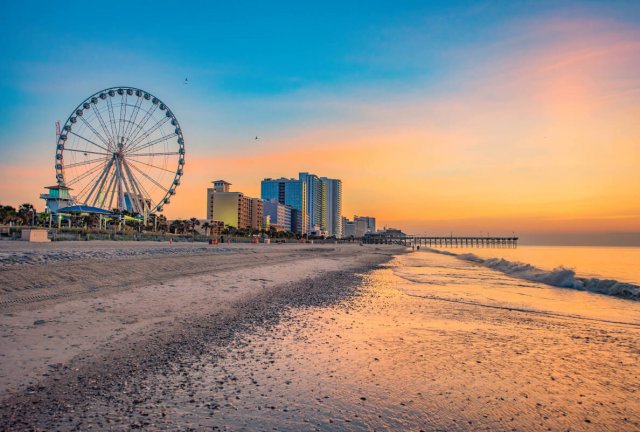



I know it says no alcohol on beach but every time I have ever been to the people be drinking all day and life quards say nothing
That’s true! We see it too!